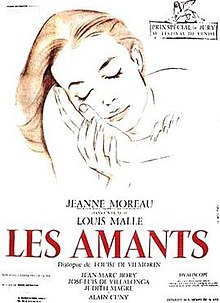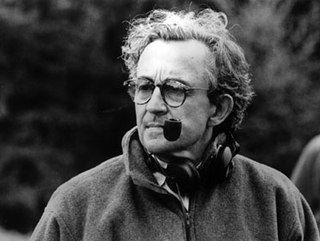
Louis Marie Malle was a French film director, screenwriter, and producer who worked in both French cinema and Hollywood. Described as "eclectic" and "a filmmaker difficult to pin down", Malle made documentaries, romances, period dramas, and thrillers. He often depicted provocative or controversial subject matter.

Jeanne Moreau was a French actress, singer, screenwriter, director, and socialite. She made her theatrical debut in 1947, and established herself as one of the leading actresses of the Comédie-Française. Moreau began playing small roles in films in 1949, later achieving prominence with starring roles in Louis Malle's Elevator to the Gallows (1958), Michelangelo Antonioni's La Notte (1961), and François Truffaut's Jules et Jim (1962). Most prolific during the 1960s, Moreau continued to appear in films into her 80s. Orson Welles called her "the greatest actress in the world".

France competed at the 1972 Summer Olympics in Munich, West Germany. 227 competitors, 197 men and 30 women, took part in 132 events in 18 sports.

Jules and Jim is a 1962 French New Wave romantic drama film directed, produced and co-written by François Truffaut. Set before and after World War I, it describes a tragic love triangle involving French Bohemian Jim, his shy Austrian friend Jules, and Jules's girlfriend and later wife Catherine.

Diary of a Chambermaid is a 1964 French–Italian drama film directed by Spanish-born filmmaker Luis Buñuel and starring Jeanne Moreau as a Parisian chambermaid who uses her body and wiles to navigate the perversion, corruption, and violence she encounters at the provincial estate where she goes to work. Though highly satirical and reflective of his typical anti-bourgeois sentiments, it is one of Buñuel's more realistic films, and generally avoids the outlandish surrealist imagery and far-fetched plot twists found in many of his other works. The film was the first screenwriting collaboration between Buñuel and Jean-Claude Carrière, who extensively reworked the 1900 novel of the same name by Octave Mirbeau. Buñuel and Carrière would go on to collaborate on Belle de Jour (1967), The Milky Way (1969), The Discreet Charm of the Bourgeoisie (1972), The Phantom of Liberty (1974) and That Obscure Object of Desire (1977).
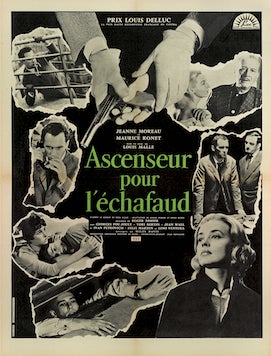
Elevator to the Gallows, also known as Frantic in the U.S. and Lift to the Scaffold in the U.K., is a 1958 French crime thriller film directed by Louis Malle, starring Jeanne Moreau and Maurice Ronet as illicit lovers whose murder plot starts to unravel after one of them becomes trapped in an elevator. The scenario was adapted from the 1956 novel of the same name by Noël Calef.
Henri Decaë gained fame as a cinematographer entering the film industry as a sound engineer and sound editor. He was a photojournalist in the French army during World War II. After the war he began making documentary shorts, directing and photographing industrial and commercial films. In 1947 he made his first feature film.
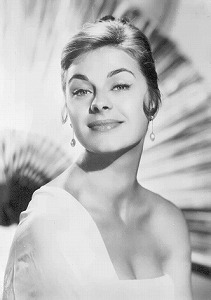
Michèle Girardon, sometimes credited as Michele Girardon, was a French actress.

Maurice Ronet was a French film actor, director, and writer.

The Fire Within is a 1963 drama film written and directed by Louis Malle. It is based on the 1931 novel Will O' the Wisp by Pierre Drieu La Rochelle, which was inspired by the life of poet Jacques Rigaut. The film stars Maurice Ronet and features Léna Skerla, Jean-Paul Moulinot, Bernard Tiphaine, Bernard Noël, Jeanne Moreau, Jacques Sereys, and Alexandra Stewart in supporting roles. The score consists of music composed by Erik Satie and performed by pianist Claude Helffer.

René Xavier Marie Alain Cuny was a French actor of stage and screen. He was closely linked with the works of Paul Claudel and Antonin Artaud, and for his performances for the Théâtre national populaire and Odéon-Théâtre de France.
The Manifesto of the 121 was an open letter signed by 121 intellectuals and published on 6 September 1960 in the magazine Vérité-Liberté. It called on the French government, then headed by the Gaullist Michel Debré, and public opinion to recognise the Algerian War as a legitimate struggle for independence, denouncing the use of torture by the French army, and calling for French conscientious objectors to the conflict to be respected by the authorities.
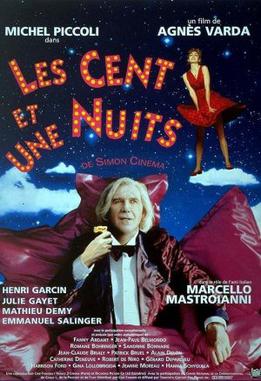
One Hundred and One Nights is a 1995 French comedy film directed by Agnès Varda. A light-hearted look at 100 years of commercial cinema, it celebrates in vision and sound favourite films from France, Germany, Italy, Japan, and the USA. It was entered into the 45th Berlin International Film Festival.

Julietta is a 1953 French romantic comedy film directed by Marc Allégret and starring Dany Robin, Jean Marais and Jeanne Moreau. The film was based on a novel of Louise de Vilmorin. In United Kingdom the film was known under the title "Julieta" (Mexico), "Biljett till Paris" (Sweden), "Il peccato di Giulietta" (Italy), "Ștrengărița" (Romania).
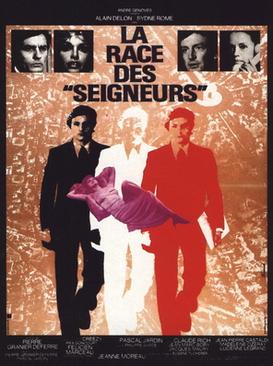
Creezy is a 1974 French film directed by Pierre Granier-Deferre and starring Alain Delon. It is based on the novel Creezy by Félicien Marceau.

Banana Peel is a 1963 French-Italian-German comedy film starring Jeanne Moreau and Jean Paul Belmondo. Costumes by Pierre Cardin.
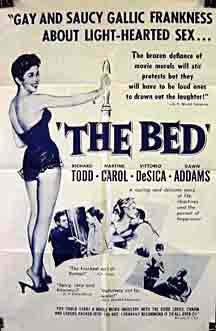
Secrets d’alcôve is a 1954 French comedy film made up of four sketches by Henri Decoin, Jean Delannoy, Gianni Franciolini and Ralph Habib ("Riviera-Express"). Kingsley International released the film in the UK.
Simone Marie Jeanne Berger, better known as Simone Sylvestre, was a French film actress. Sylvestre died on 29 March 2020, at the age of 96.
